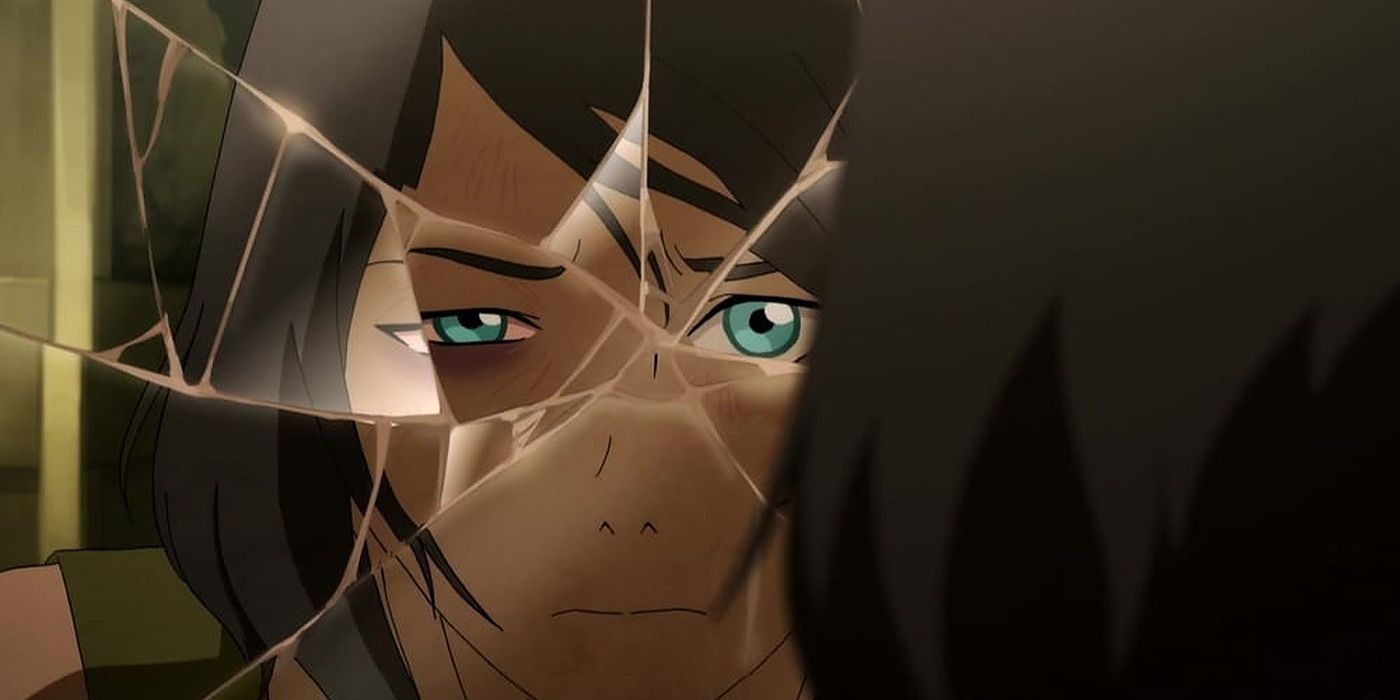When The Legend Of Korra came to Netflix, fans of the series were excited for the chance to rewatch this legendary show. It also gave those who missed the show when it was airing a chance to enjoy this entry in the popular Avatar series. However, when viewers pressed play on the first episode, they were met with a rather confusing message. At the start of every episode of the show, Netflix displays a content warning declaring the show is rated TV-PG due to self-harm.
Many presume that Netflix added this warning due to the ending of the first season. In this episode, Tarrlok and his brother Noatak are fleeing on a boat. However, while his brother's back is turned, Tarrlok puts on a weaponized glove and uses it to grab the boat's fuel tank causing a massive explosion that kills both him and his brother in a deliberate murder-suicide. This scene is more than worthy of a content warning; while villain deaths are common in children's media, this one is much more brutal and realistic than those found in comparable cartoons.
However, this warning doesn't apply to other episodes in the series, making this content warning very unhelpful for viewers who are looking to reduce their exposure to the topic. The fact that this warning appears before every episode makes it seem as if self-harm is a major recurring theme of the series and that viewers will have to see content related to it at least once an episode. Oddly enough, there's no more general content warning about violence, even though Korra much more frequently shows its villains dealing significant harm to others.
Traditional network television features unique content warnings and ratings for each episode of a series. Netflix really needs to move towards this model so viewers can more easily and accurately avoid upsetting content. They could further improve the system by making the warning in the show's overview into a clickable dropdown that gives more information about why the series has that warning.
The controversial 13 Reasons Why has a separate tab for its content warnings. While this tab mostly serves to redirect you to a website of crisis resources, it is a surprise that every show doesn't have this tab, as it is a much better way to present these warnings. It should also be noted that 13 Reasons Why includes a warning for suicide, but not for self-harm, showing how inconsistent these warnings are.
Netflix should be praised for its content warnings. They're a useful tool for helping people manage their exposure to certain topics and they allow parents to make sure that the content they're showing their children is appropriate for their level of maturity. However, the current system only serves to confuse viewers. The warnings are vague, generalized and not consistently applied, making it hard to effectively filter content. It is a shame that people might avoid The Legend Of Korra because they're led to believe that self-harm is way more prevalent in the show than it actually is.


